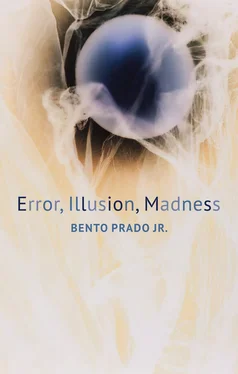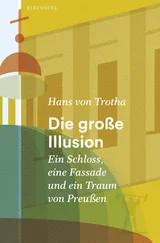Translated by Rodrigo Nunes
1 1 [Translator’s note: The military dictatorship that lasted from 1964 to 1985 officially pardoned everyone it had persecuted on August 28, 1979. This amnesty is very polemic in Brazil because it also included state agents who had killed and tortured under the regime. The two-way nature of the pardon was one of several conditions that the military put in place when negotiating the reinstatement of civilian government.]
2 2 Paulo Emílio Salles Gomes, “Cinema: A Trajectory within Underdevelopment,” in Brazilian Cinema, ed. Randall Johnson and Robert Stam (New York: Columbia University Press, 1995), p. 245.
3 3 Bento Prado Jr., Ipseitas (Belo Horizonte: Autêntica, 2017), p. 82.
4 4 [TN: I-monde in the original involves an untranslatable play on monde “world” and immonde “mucky.” See n. 17.]
5 5 Bento Prado Jr., “Le dépistage de l’erreur de catégorie,” in Lógica e ontologia: ensaios em homenagem a Balthazar Barbosa Filho, ed. Fátima Évora et al. (São Paulo: Discurso, 2004), pp. 347–8.
6 6 Ipseitas, published in 2017. [TN: See n. 3.]
7 7 Bento Prado Jr., Alguns ensaios: filosofia, literatura, psicanálise (São Paulo: Paz e Terra, 2000), p. 210.
8 8 Prado Jr., Alguns ensaios, p. 205.
9 9 Prado Jr., Alguns ensaios., p. 210.
10 10 [TN: The reference to Whitehead in Bento Prado Jr. that Vladimir Safatle picks up on here probably has Maurice Merleau-Ponty as its hidden mediator: “the edges of nature are always ragged” [les bords de la nature sont toujours en guenilles] is how the latter translated Whitehead’s statement “nature as perceived always has a ragged edge.” See Maurice Merleau-Ponty, Nature: Course Notes from the Collège de France, trans. Robert Vallier (Evanston: Northwestern University Press, 2003), p. 114; Alfred North Whitehead, The Concept of Nature (Cambridge: Cambridge University Press, 1920), p. 50.]
11 11 Prado Jr., Ipseitas, p. 90.
12 12 Prado Jr., Ipseitas, p. 181.
13 13 Prado Jr., Ipseitas, p. 196.
14 14 Prado Jr., Ipseitas, p. 86.
15 15 Prado Jr., Ipseitas, p. 88.
16 16 Prado Jr., Alguns ensaios, p. 187.
17 17 “As is the case with other American peoples, our formation is not natural, spontaneous, or, so to speak, logical. Hence the muck of contrasts that we are.” Mario de Andrade, Aspectos da literatura brasileira (São Paulo: Martins, 1974), p. 8. [TN: The word for “muck”—imundice, itself a corruption of imundície—echoes Bento Prado’s play on i-mundo (at once “unworld” and “mucky”). See n. 4.]
18 18 As Paulo Arantes would say in relation to this phantasm: “In short, in an ‘amorphous and dissolved’ social environment, to borrow Tobias Barreto’s words in Um discurso em mangas de camisa, everything conspired to produce listless souls, a certain weariness felt by all, an invitation to a voluntarism drawn hither and thither by the flickers of curiosity, as lacking in fiber as the matter of the formless social body was ‘soft, excessively plastic and ductile.’” Paulo Arantes and Otília Fiori, Sentido da formação: Três ensaios sobre Antonio Candido, Gilda de Mello e Souza e Lúcio Costa [The Meaning of Formation: Three Essays on Atonio Candido, Gilda de Mello e Souza and Lúcio Costa] (São Paulo: Paz e Terra, 1997), p. 18.
19 19 Jürgen Habermas, Moral Consciousness and Communicative Action, trans. Christian Lenhardt and Shierry Weber Nicholsen (Cambridge, MA: MIT Press, 1990), pp. 100–1.
20 20 Prado Jr, Alguns ensaios, p. 96.
21 21 See page 63 in this volume.
22 22 [TN: Fernando Henrique Cardoso—like Bento Prado Jr., a former professor at the University of São Paulo persecuted by the military regime—was the president of Brazil from 1995 to 2002.]
23 23 See page 20 in this volume.
24 24 Prado Jr., Ipseitas, p. 88.
25 25 See Paul Celan, “Todtnauberg,” Breathturn into Timestead: The Collected Later Poetry: A Bilingual Edition, trans. Pierre Joris (New York: Farrar, Straus and Giroux, 2014), 254–6: Arnika, Augentrost, der / Trunk aus dem Brunnen mit dem / Sternwürfel drauf / in der / Hütte, / die in das Buch / wesen Namen nahms auf / vor dem meinen? / die in dies Buch / geschriebene Zeile von / einer Hoffnung, heute, / auf eines Denkenden / Kommendes / Wort/im Herzen, / Waldwasen, uneingeebnet / Orchis und Orchis, einzeln, / Krudes, später im Fahren / deutlich, / der uns fährt, der Mensch / der’s mit anhört, / die halb- / beschrittenen Knüppel- / pfade im Hochmoor / Feuchtes / viel.
26 26 Martin Heidegger, Introduction to Metaphysics, trans. Gregory Fried and Richard Polt (New Haven: Yale University Press, 2014), p. 224.
27 27 Martin Heidegger, “Why Poets?” in idem, Off the Beaten Track, trans. Julian Young and Kenneth Hayes (Cambridge: Cambridge University Press, 2001), p. 224.
28 28 Heidegger, “Why Poets?,” p. 224.
29 29 Heidegger, “Why Poets?,” p. 220.
This volume contains five lectures and one interview, all given between 1994 and 1996, in addition to a small article on Bergson, which is much more recent. Each of the texts is entirely autonomous and can be read independently of the others. All of them, however, are related and mutually supportive, and the same basic question pervades them. However, even if they present the same arguments over and over again, each does so from a different perspective, which explains and justifies their joint publication.
If I am not the victim of a retrospective illusion, I could in fact claim to be resuming, in each and every one of them, an old obsession that had already surfaced in my first work in 1964: the question regarding the place of the subject , or rather the problem of ipseity and its forms of expression . When I recently presented that work—my thesis on Bergson—on the occasion of its recent French translation, this is how I described my subsequent itinerary:
To conclude, I should proceed a little further into the paradox of the distant that suddenly reveals itself to be close; and I should do this by describing the curve drawn by an itinerary that, starting from the reconstitution of the Bergsonian origin of subjectivity in the transcendental field of images, seems to return to him in two different stages.
I took a first step during my stay in France between 1969 and 1974 at the Centre National de la Recherche Scientifique, after being dismissed from the University of São Paulo, when I wrote a book (of which only a few chapters were published) on Rousseau and his essentially rhetorical concept of language—that is, on his conception of intersubjectivity or, in Jean Hyppolite’s excellent formulation, on Rousseau’s decision to instate language in the place that the metaphysical tradition reserves for God. 1
I would go on to describe the second step, which culminates in this book, as the one that led me, back in Brazil, to dedicate “several essays to the analytical philosophy of mind, with the intention of showing how this tradition distances itself from Wittgenstein’s thought and betrays its deepest spirit by ignoring how the problem of subjectivity and transcendence remains regardless of its conception of philosophy as grammatical analysis.” That is how Ludwig Wittgenstein came to take center stage in this book: never as the object of a properly philological approach or as a pretext to penetrate, unarmed, the field of the philosophy of logic, both of which are tasks beyond my reach. My goal was rather to make an intuitive incursion, if I may use an expression frequently employed in a pejorative sense. Do not expect, dear reader, a technical or scholastic treatment of Wittgenstein’s texts, especially because I agree with my old friend Andrés Raggio 2(himself a notable logician of the highest creativity and technical skill), who liked to say that, in philosophy, technical skill is inversely proportional to the philosophical interest of a text.
Читать дальше












